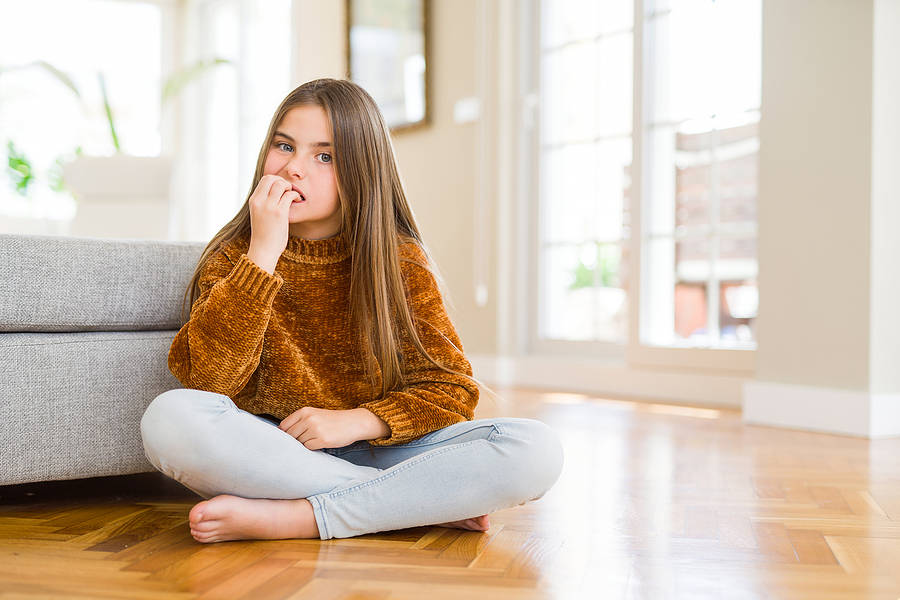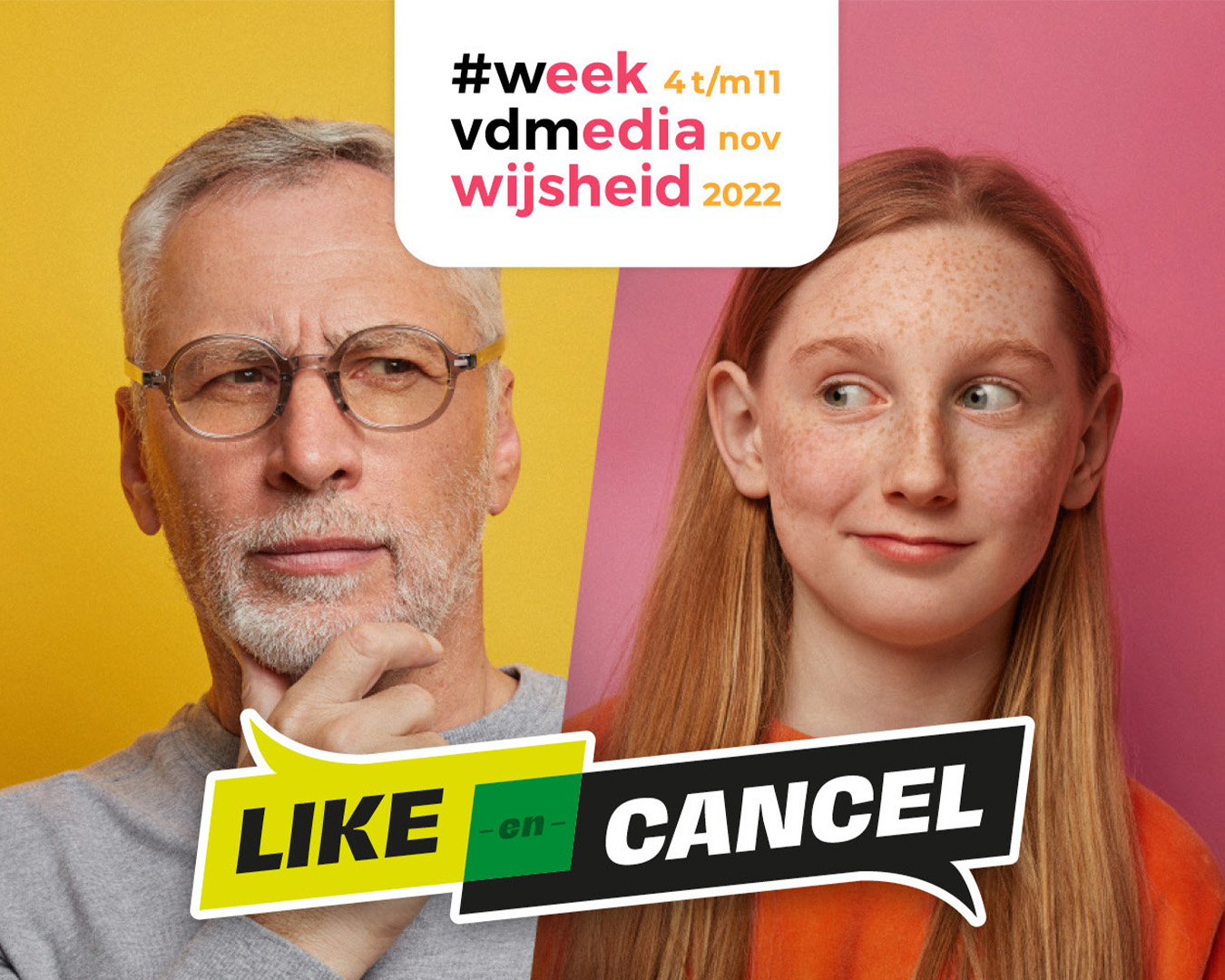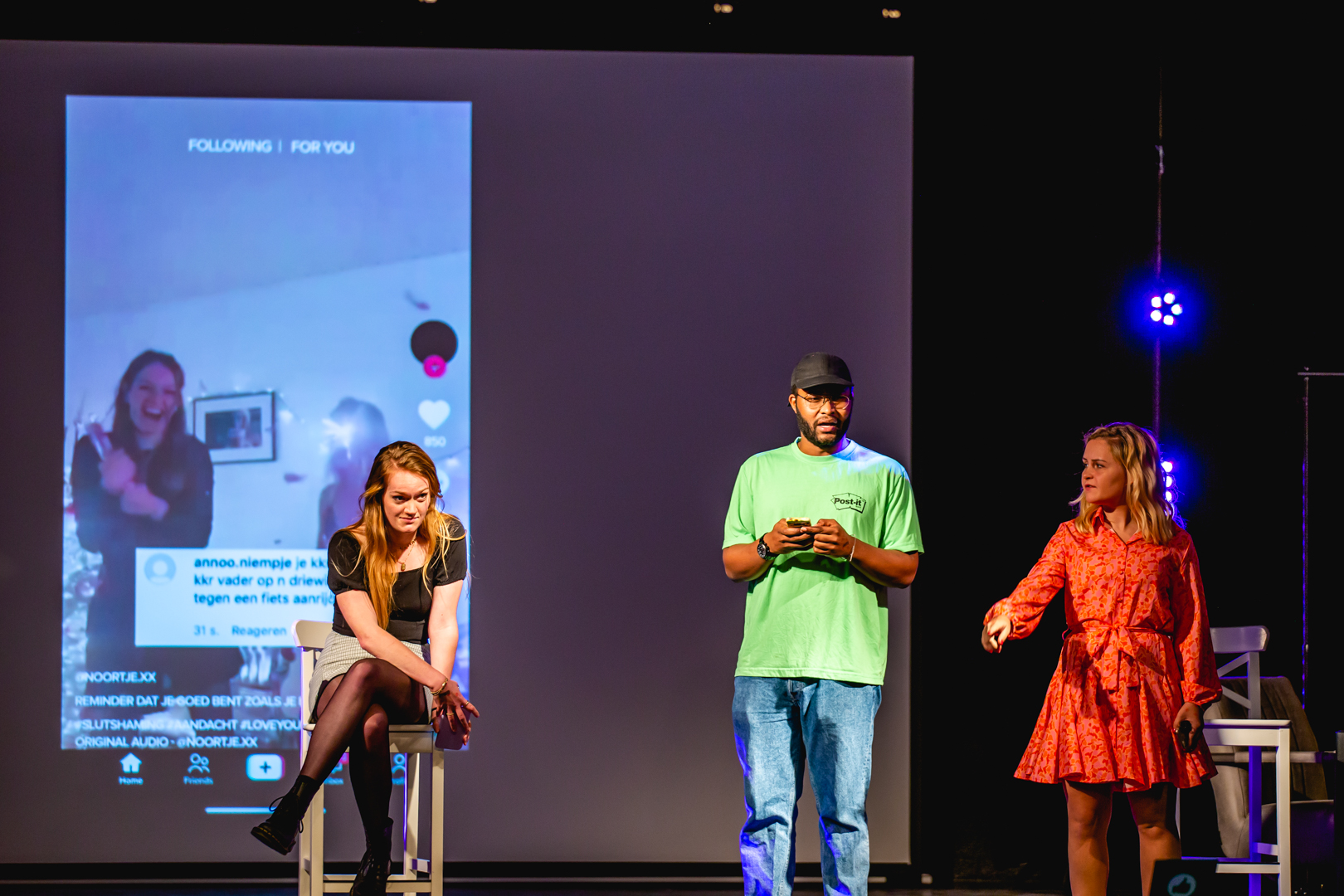Young people are spending more and more time on social media platforms such as Instagram, TikTok, Snapchat and WhatsApp. How does this affect their well-being? It is one of the themes that Micky Devente of Netwerk Mediawijsheid and Moniek and Esther, researchers of the Movez Lab and initiators of Bitescience, have found each other in. Micky is involved in her capacity as online manager at the Dutch Media Literacy Network, while Moniek and Esther are involved both as researchers at Erasmus University’s Movez Lab and as the initiators of Bitescience.The collaboration with the Dutch Media Literacy Network offers the opportunity to make research insights from the Movez Lab accessible to a wider audience.
The Dutch Media Literacy Network is strongly committed to the goal of a media literate population in the Netherlands and making sure people are taking steps to make this happen. Because people who are media literate are able to more freely and confidently navigate a society in which online media play an increasingly important role. “This is all part of our joint efforts as a network, and knowledge plays a vital role. Knowledge about how media can make us happy and more socially oriented, for example. Our partnership with Bitescience allows us to incorporate scientific knowledge in our work,” explains Micky.
A positive approach
It’s a partnership that is highly appreciated by both parties. Micky, Moniek and Esther feel that the positive and open-minded approach in particular is crucial. All three observe that there is often a focus on the negative effects of social media: a negative self-image, loneliness, and disrupted social ties. Moniek doesn’t deny these negative effects, but she feels they only affect a minority of users: “The way social media are used in education, for example, can in fact have a very positive impact. There are a lot of great examples out there and we want to highlight this positive aspect as well. Instead of just presenting a research report, we would prefer to do this in a way that’s accessible for the general public.”
Posting Bitefiles on the websites of netwerkmediawijsheid.nl and bitescience.com is one way of doing this. Bitefiles are brief articles that explain scientific knowledge on a particular subject in layman’s terms. “We’re all working together to discover how you can use media responsibly in everyday life. What makes all three of us really enthusiastic is seeking out connections between science and practice that people can actually use,” says Esther.
All age groups
The Movez Lab and Dutch Media Literacy Network partnership identifies which issues are attracting interest in society. Micky: “In the beginning the focus was on how young people use media. But after seeing how fast society is embracing digital technology, that’s now been expanded to all age groups because media literacy is something that also concerns adults and senior citizens. There’s a heightened risk of a ‘digital gap’. How do we make sure no one is left behind?” Moniek adds: “Media and behaviour is currently a hot topic that touches us all. That means people will really listen to us when we share our research findings. And there’s also more scope for a nuanced approach to the topic. The impact of rapidly advancing digital technology isn’t entirely negative. You need look no further than all the possibilities of digital technology that we discovered during the COVID-19 pandemic.”
Digital inclusion
The researchers believe that if we are to reduce the digital gap, we also need to reflect on what we share and how we share it. Esther: “If we set digital inclusion as our goal, then we have to take an inclusive approach in how that media content is created and used. Right now we often see that the population’s majority groups are overrepresented. Being more aware about who you invite as a guest on a talk show or who presents the news is essential. If you create and share content on TV or social media, be aware of how what you’re saying could be perceived and who you might unintentionally be excluding.”
About the collaboration
The collaboration between the Dutch Media Literacy Network and the Movez Lab is seen as fruitful from both sides. Network Media Literacy provides the opportunity for communicating research insights to a wide audience while the Movez Lab offers science-based information to empower a media-wise Netherlands. Interested in more outcomes of this great collaboration? Read the related articles below.


